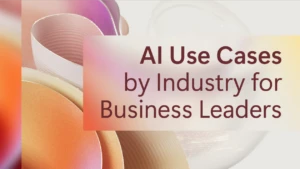
Modern Service Management for Government Agencies
| Learn more: Modern Service Management in the Intelligent Cloud |
Intelligence in the Cloud: Adopting Today’s Modern Service Management
When conventional IT services are replaced with cloud-based services, everyone feels the change. Services no longer exist in silos, manual configurations fall by the wayside, and communication is streamlined.
With the cloud, IT gets faster, more intelligent, and less expensive. Importantly, IT services are no longer separated from business outcomes. Indeed, as government agencies have come under increasing pressure to improve service delivery while consuming fewer resources (read: lower budgets)—driving business value through IT has emerged as the latest challenge.
To address this issue, enterprising departments and agencies have turned to Microsoft Modern Service Management© (MSM). MSM helps agencies simplify the complex world of IT—and align it with the same goals and expectations citizens have for other business components. It increases productivity and connectivity, decreases costs, and enables greater agility to address changing business needs.
What is Modern Service Management© (MSM) and why does it matter?
At its core, MSM uses data to make sense of the relationships between an agency’s people and its business processes. Automation and streamlined workflows connect people and processes, resulting in a multi-dimensional, cloud-based platform capable of incorporating every device and team, across every medium, utilizing essential business operations like analytics, reporting, product releases, and updates.
Unlike conventional IT Service Management (ITSM), MSM promotes practices such as Agile and DevOps, which let organizations and agencies evolve and deploy products and features faster; scale up or down to accommodate shifts in citizen demand; and achieve higher returns on investment (ROI) faster.
This shift in management approach is reflected in the following ways:
- Greater levels of creativity and innovative output
- Proliferation of more and varied devices
- Simpler automation, increased storage capacities, and stronger security
- Widespread connectivity and integration with emerging technologies like machine learning and artificial intelligence (AI)
- Faster DevOps
With MSM, government organizations can move at the pace, and in the direction, they want—without being slowed down by the cog-in-the-wheel processes and dissonance that comes with traditional IT. Optimized in the cloud, service is continuous, end-to-end, automated, self-directed, cross-connected, fast, and resilient. There are no information silos, no islands, no manual configuration, and little need for a manual oriented helpdesk.
Intelligent Cloud drives efficiency, agility, and cost sensibility
Microsoft developed the Intelligent Cloud platform to support government organizations undertaking IT service modernization efforts.
Microsoft Intelligent Cloud is a comprehensive solution combining the expansive capabilities of Dynamics 365, Office 365, and Azure. It transforms previously siloed, on-premise systems and operations into efficient cloud solutions and applications—without losing anything in transit.
Agencies and departments can use the platform to optimize service delivery for every workload, internal and external application, and customer touch point, thereby reducing the costs and resources associated with ITSM-only solutions. With Intelligent Cloud, agencies can continuously improve without huge projects and huge budgets.
These benefits are achieved via the Appsource-approved Provance IT Service and Asset Management accelerator solution, which executes in the Intelligent Cloud. It accommodates ITSM processes, while moving businesses down the path to Modern Services Management.
With Microsoft Intelligent Cloud, agencies and organizations can dramatically increase self-service and automation capabilities to slash call handling and processing times in customer-facing activities. Employees are empowered to establish and automate their own workflows—significantly reducing the time wasted on manually driven processes.
Organizational leaders can assert greater control over operations. Management insights with built-in intelligence provide better visibility into how and where resources are deployed. In addition, analytics capabilities drive smarter strategic decision-making to meet the needs of internal stakeholders and external customers.
Microsoft Intelligent Cloud provides a consistent, familiar user experience. Automation capabilities across applications, tools, and workflows support an agile product development approach and simplify ITSM overall.
A cost management thought experiment
While many solutions boast about their cost savings and efficiency capabilities, Microsoft has a history of delivering on those promises. Microsoft Intelligent Cloud is the latest in a long line of pioneering solutions to complex technical challenges within the public sector.
To demonstrate the extent and mechanism through which Microsoft solutions deliver exceptional value, consider this example:
A government organization of approximately 100,000 total employees, including 500 on the IT team might spend approximately $820K on software purchases and implementation services with Microsoft like this:
- Dynamics ($40/user/month x 500 x 12) = $240k
- Provance ($30/user/month x 500 x 12) = $180k
- Implementation Services ($400k)
An agency using Microsoft Intelligent Cloud solutions can expect to save as much as $2.4 million annually through greater efficiency and streamlined operations:
- One hour of IT saved per employee per month through automation and efficiency gains: 500x $100 = $600k
- One hour of employee time saved, per employee (15% of employee base) per month with FTE = $80 = $1,440k
- Reduced call volume, assuming call P2P is $13 / call and 4000 calls per month = $624k
Here are the key features that make it happen:
- Dynamics 365 – Integrates ERP and CRM data and makes it available across teams—sales, customer care, operations, marketing, finance, and more. Microsoft’s CRM platform in the cloud lets you uncover and share valuable data, make better business decisions, and modify and improve operations.
- Office 365 – Familiar Office applications that power your business processes and workflows move to a subscription model, administered and supported in the cloud with Office 365. Access applications anywhere from any device, keeping productivity on track, whether at your desk or out in the field.
- Azure – Developers and non-developers alike can use the data services of Azure to build intelligent apps faster. Azure’s integrated tools support every operating system, programming language, database, and device. And as a hybrid platform, data can be connected seamlessly between physical locations and the cloud.
- Provance – Building off your existing ITSM investments, Provance extends the capabilities of Dynamics 365 and Office 365 by helping you move toward cloud-based services and mobile applications. Install Provance solutions on-site or online to help you leverage the data, insights, tools, and service capabilities already provided by Office 365 and Dynamics 365.
Microsoft’s Intelligent Cloud is a key component to modernizing government agency IT services. The Microsoft ecosystem provides solutions that help government service providers deliver greater value and improved service to citizens through intelligent, data-driven, connected IT services that fuel growth, innovation, and insight.
Learn more about how Microsoft’s Intelligent Cloud can help your organization simplify technology, improve support, and develop new capabilities—leading to greater efficiency, agility, innovation, and cost sensibility. Contact us for more information or questions.




